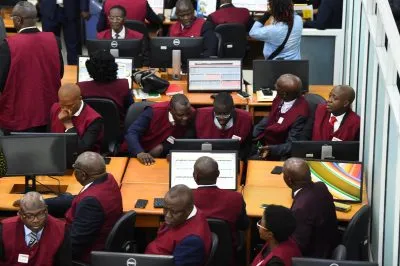In recent months the African tech landscape has been rocked by allegations of sexual misconduct and gender discrimination. A failure to act as platforms to prevent, be a safe place to report and discipline misconduct echoes the problems that drove widespread criticisms of venture capital companies by the #MeToo movement.
On 24 June 2020 music website Okayplayer announced that CEO Abiola Oke had resigned following an open letter from women at the firm that outlined below market salaries, inappropriate behaviour and verbal abuse.
On July 7, the board of Nigerian ISP Tizeti Network said that it had reinstated Kendall Ananyi as CEO after accepting the findings of “independent legal counsel” that a case of sexual harassment made against him in early June “had not been established”. However, his alleged victim, tech consultant Kelechi Udoagwu, claimed that there had been “no process, transparency, clarity, structure, or independence” in the company’s investigation.
A wake-up call for investors
The dialogue following these events is a wake-up call for local VCs and entrepreneurs to focus their attention on culture, policies, and governance systems at the earliest stages of startup investment. Investors have a duty to act beyond their own organisations, and to ensure that governance is correctly upheld throughout their portfolios.
A pre-#MeToo survey showed that the vast majority of boards (77%) had not discussed accusations of sexually inappropriate behaviour or sexism in the workplace. For nearly all of them, recent scandals around sexual harassment didn’t trigger the creation of a plan of action (88%) or any actualisation of the risk assessment regarding these issues (83%).
Why? The boards believed it wasn’t a primary problem at their companies. Many boardrooms in Africa have a similar perception, with high-profile incidents only beginning to come to light.
Beyond the negative impacts that misconduct can have on company brands, legal liability, and social impact, the IFC has shown that putting policies in place for creating a respectful workplace and addressing sexual misconduct can “drive productivity, profitability, and performance”.
Ultimately being proactive when dealing with governance concerns around harassment and discrimination is beneficial to the bottom line, as well as to the working lives of employees.
Investors working on the continent must guide their investee companies to enact formal policies about appropriate conduct between employees and the broader ecosystem, while allocating resources to prevent harassment, instructing proper reporting channels, investigating all complaints fairly and equitably, and creating a respectful company culture through measurable, consistent actions.
Due process of the law can take time in many of Africa’s jurisdictions, and moving forward with an action such as removing a founder from his management role before a legal decision is reached may not be straightforward.
However, investors need to have the processes in place to act without delay in the face of serious allegations at their investee companies, should they occur. Within investment firms, a policy for team members and their internal interactions, as well as their behaviour outside the firm with ecosystem participants, investee companies, and pipeline companies, is essential as a first step.
Creating and upholding an environment of diversity, free from discrimination
Gender balance and equality policies, starting from the recruiting process, through to promotion schemes and salary equity, are key to reducing harassment in Africa’s tech companies.
McKinsey’s 2016 Women Matter Africa report showed that the number of female chief executives in Africa sits at just 5%, with only 29% of senior management roles held by women. Research also shows there is a direct link between gender segregation and sexual harassment.
To move the needle on harassment, investors must hold the senior management of portfolio companies responsible for the implementation of non-discrimination and equal inclusion plans through measurable and achievable goals.
The 2X Challenge, an initiative to promote enhanced economic participation in developing markets through the allocation of investment, has set an example with targets of 20-30% of women in senior leadership positions and 30-50% of women across the workforce.
As part of environmental, social, and governance (ESG) value creation, investors must support and monitor companies’ progress on inclusion plans, while making sure all employees are protected from harassment and discrimination.
The same principles of diversity and inclusion should also be put in place for internal investment teams. Having a diverse team of investors and a gender-lens investing approach, further promotes diversity across portfolios.
Cultural ‘norms’ don’t justify harassment
Cultural “norms” are often stated as a reference point to determine whether statements are inappropriate, with the argument that “things can’t change overnight” imposed on activists fighting for equality in Africa. While it is prudent to be open to debate on what sensitivities should be applied in the context of cultural behaviours, many actions simply do not have a grey area.
No behaviours that create a feeling of inferiority, including not only sexual assault but also ridiculing behaviours, social exclusion and physical abuse, should be tolerated at any organisation.
For women in the office certain patronising treatments such as insisting that they dress in certain ways not applied to their male colleagues, serve food and drinks, or not participate in certain bonding exercises (such as sporting activities), may make women feel inferior, whether directly intended or not.
Investors and companies play a critical role in providing education to employees and ecosystem participants on what harassment is, what form it takes, what causes it, what conditions foster it, and how it is linked to broader patterns of discrimination and inequality.
Allowing serious harassers to resign quietly does not effect cultural change. A broader approach that holds institutions accountable for systemic harassment should be investigated, implemented, and tracked.
Time for action
It’s time for the ecosystem to call on companies and organisations in Africa to enact measurable responses to misconduct. “We are working on it” is not enough of a response. We at Acuity Venture Partners pledge as an open-source approach to share our own statement, external policy, and points of contact for reporting harassment or governance-related concerns at our investee companies in the next 30 days. We encourage other investors across the industry to join; together we can make our ecosystem better.
Lexi Novitske is a managing partner at Acuity Venture Partners
Want to continue reading? Subscribe today.
You've read all your free articles for this month! Subscribe now to enjoy full access to our content.
Digital Monthly
£8.00 / month
Receive full unlimited access to our articles, opinions, podcasts and more.
Digital Yearly
£70.00 / year
Our best value offer - save £26 and gain access to all of our digital content for an entire year!
 Sign in with Google
Sign in with Google 



